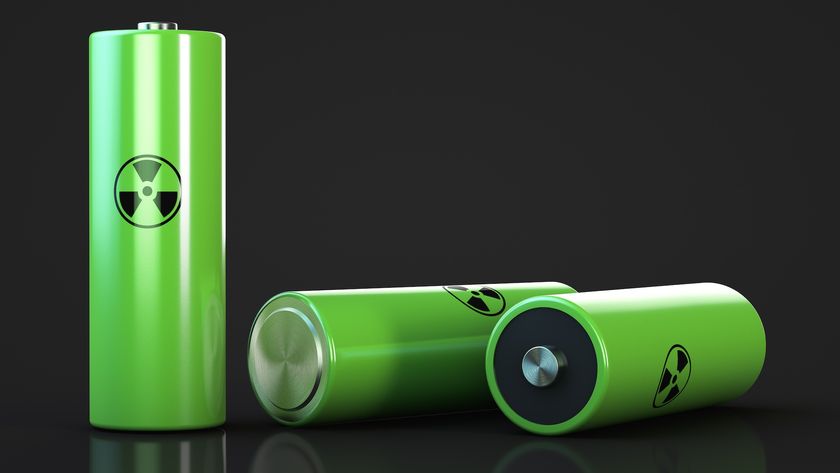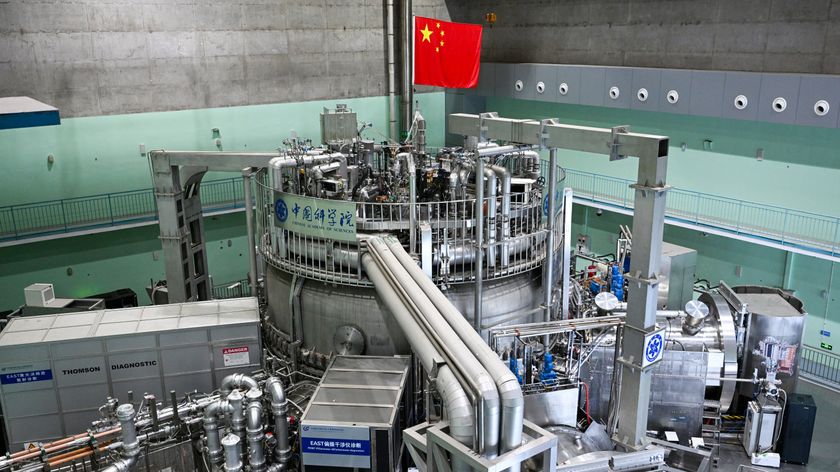How Less Zoom Zoom Could Power the Future
Each Wednesday LiveScience examines the viability of emerging energy technologies - the power of the future.
Hybrids may be the great green hope, but new research shows that improvements to normal cars could reduce the nation's fuel consumption sooner and cheaper.
"We can absolutely reduce petroleum use and greenhouse gas emissions over the next 30 years," said Anup Bandivadekar of the International Council on Clean Transportation. "But in order to do that, we must halt increases in vehicle size and horsepower."
Bandivadekar and his former colleagues at MIT recently did a study on how to double the gas mileage (miles per gallon) of the average new car by 2035. They found that advanced technologies such as hybrids could help, but not by themselves and not anytime soon.
"Even if you have a great new technology, it takes decades-worth of time to see an impact," he said.
But current "mainstream" technology has the potential to significantly reduce fuel consumption in a traditional car at a cost that is about $2000 less than buying a hybrid.
All it takes is accepting less of a performance upgrade.
Sign up for the Live Science daily newsletter now
Get the world’s most fascinating discoveries delivered straight to your inbox.
The tradeoff
Normal cars keep getting better all the time. Over the last three decades, vehicle efficiency has increased by a few percent per year thanks to improved engine designs, reduced drag and lighter-weight materials, Bandivadekar told LiveScience.
But in the United States most of these improvements have not been used to reduce fuel consumption, but instead to increase vehicle size and acceleration, or what Bandivadekar called "the zoom-zoom effect."
If this trend continued up to the year 2035, the average vehicle would go zero to 60 mph in 6.5 seconds, while still getting around 25 miles per gallon.
In such a scenario, the U.S. fleet would consume around 200 billion gallons (765 billion liters) of gasoline per year. This is roughly 35 percent more than today owing to growth in the number of cars and miles-traveled.
Bandivadekar and his colleagues looked at how to bring down the nation's projected fuel tab by shifting some portion of technological advances away from higher performance and towards better fuel economy.
For example, if manufacturers placed their full emphasis on reducing fuel consumption, the average automobile in 2035 could get 42 miles per gallon, while still accelerating as fast as today (zero to 60 mph in 9.5 seconds).
This would result in a 26 percent decrease in total fuel consumption from the business-as-usual case.
"That's the big potential of technology that you would be squandering away on performance," Bandivadekar said.
Mixing in hybrids
"This research is unique in that it started with a specific goal of fuel consumption, rather than focusing on a specific technological solution as is traditionally done," said John DeCicco of the Environmental Defense Fund, a non-profit organization that partly sponsored the MIT research.
Bandivadekar and colleagues did look at emerging technologies and found the best case was for hybrids, which currently make up 3 percent of new vehicle purchases. If hybrids could increase their market share to 55 percent by 2035, fuel use could be slashed by as much as 40 percent.
But the greatest cuts are going to require both advanced vehicle designs and a willingness to sacrifice increases in performance.
"It’s not either/or," Bandivadekar said, "You need to do both." Green car envy
With fuel prices continuing to climb, signs are showing that consumers are moving away from big, high performance cars. DeCicco doubts they will miss the horsepower.
"Despite the mystique about high performance, most drivers never need to go zero to 60 in 7 seconds," he said. "To a lot of them, a 1000 watt stereo is more important than a 200 horsepower engine."
Other car features are coming into the limelight: electronics, safety and navigation, all of which are less energy consumptive than a big engine.
DeCicco thinks, "Horsepower will go the way of the horse." High performance cars will cease to be a common form of transportation but will remain a constant feature on the racetrack, he said.
- Top 10 Emerging Environmental Technologies
- Hybrid Cars: How They Work
- Hybrid Car Sales Up by 40 Percent













